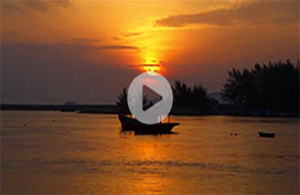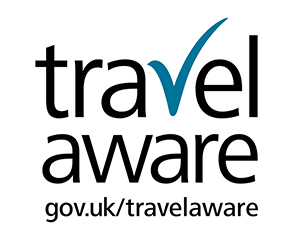
Kenya
Rightly, Kenya is a popular destination for business and pleasure. Sitting on the equator it has a good climate (hence its supremacy in agriculture) However the risk from terrorism is an issue; there have been numerous terrorist attacks in the past, many will remember the attack on the school in Garissa and the West Gate shopping mall in Nairobi. The British Foreign Office currently advises against all but essential travel to the border with Somalia and travel to some areas north of Mombasa. Elsewhere the tourist trade flourishes and the country is one of the most developed countries in Africa posting about 5% growth in GDP per annum. Literacy is high and most people speak some English. Security is tight but not over the top and politically the country feels more stable now the disruption has past.
A number of major carriers fly to Nairobi; Kenyan Airways, BA, KLM, Emirates and others. I chose to go on Ethiopian via Addis Ababa. The airline claims the youngest fleet in Africa and has recently purchased more Boeing 878 Dreamliners. The price was good; the downside was the four hours transit in Addis. The transit area has two sections, the forward part where passengers transiting Africa tend to be led and the larger main connection area with shops and some restaurants. The forward part has nothing apart from clean loos and a water fountain. Its good for plane spotting but little else! So if you any more than a 3 hour wait I strongly suggest you insist on going through to the main transit area and tuck into the limited choice of cafes, shops and restaurants.
Yellow Fever. Yes, you do need to have the inoculation certificate. I was checked on arrival in both Kenya and Tanzania. My certificate, now valid for life and no longer 10 years, is stapled into my passport so I can’t go abroad without it. As I was in the highlands area of Kenya malaria was not an issue although I took Malarone for Tanzania which in hindsight was probably overkill as a; I didn’t not encounter one mosquito and b; the locals assure one there is no malaria. However, there is malaria on coastal Tanzania and I’m very happy to play safe and not get the killer disease. Do remember that if you are in a malaria area or have come back from one and should you experience flu like symptoms assume its malaria and go to a hospital (or local doctor) and get tested for malaria.
For a number of reasons I decided to hire a car. Driving is not generally advised and is certainly not for the faint hearted. It’s tiring as one has to be on guard the whole time for all the challenges presented on the roads: pedestrians (with cows) crossing points on 3 lane highway coming into Nairobi, no lane discipline, potholes, dust and crazy driving etc. I hired a SUV – (from www.marketcarhire.com) which is advisable. The extra height helps and on one occasion we had to go off road to go past an accident. Driving at night really should be avoided; I stayed an extra night in Nairobi so as to drive in daylight. If you do have to do the last hour or so in the dark it’s quite a useful to tuck behind another car who will warn you of monster potholes and pedestrians on the road. Don't drive over 100 kph; I came across a number of speed traps and police checkpoints and I’m told the fine for speeding is steep. The traffic in Nairobi is appalling; it can take 3 hours to get across the city. Hawkers will try to sell you things in the traffic, keep your windows down by about 3 cm – its much more difficult break a window as the latter will flex. I downloaded a very good navigation App called Mapsme – you can use it ‘off line’, its excellent. Remember to download the maps before you travel.
It’s best to get some Kenyan shillings before you travel and pay in local currency whenever possible. That said, many hotels, game reserves etc will quote in US$ and will wish you to pay in dollars, so check!
Tanzania - Zanzibar
My first trip and the prime reason was to go to Zanzibar. You can fly direct to Zanzibar from many locations but I decided to go for the full experience by flying to Dar Es Salaam and taking a fast ferry to Stonetown, the capital of Zanzibar. The taxi from the airport to the Ferry terminal is a bit of a rip off, had to pay Tanzanian Shillings (TS) 50,000 (US$ 25) when it really should have been about TS 30,000. The ferry terminal is bustling, you must avoid anyone trying to sell you a ferry ticket, carrying your bag, giving you advice etc. They are just chancers. Inside the booking hall there is ticket booth for foreigners, Economy is $35 and Business just $5 more. It's a no brainer with nicer seats, air-conditioning and the Jungle Book was on the TV! The fast ferry goes four times a day, 3 sailings in the morning and one in the afternoon. The journey takes one and a half hours. Just a few general points on money:
· Tanzania is a closed currently so you can only purchase local currency on arrival.
· Bring US$. Get a 1% better exchange rate for 100 and 50 note denominations. Ensure bills not damaged as
will not be exchanged.
· There are ATMs in Stonetown but few in any elsewhere.
· The ATMs at CRDB charge the lowest commission. One close to old slave market beside Anglican Church &
St Monica’s.
· Most hotels etc will charge 5% extra for paying by credit card.
You need to be a tough negotiator on taxis, getting one across the island can range from TS100,00 to TS 140,000 depending on your skills.
One can certainly spend 2 or 3 days in Stonetown. It is rich in history which is evident in fine Arabic carved wooden doors, some old Portuguese and British buildings and on the darker side, the remnants of the slave trade. Around the year 1800, up to 100,00 slaves were passing through Zanzibar. A visit to the slave museum beside the Anglican Church is well worthwhile. You can also see two of the slave holding chambers below St Monica – easily missed so do ask. More recently Zanzibar has a more violent history when over 30,00 Indians and Muslims were slaughtered in a few days in 1964. An excellent location for lunch or a drink is the restaurant at Emerson on Hurumzi. Its roof top location gives excellent views of the town and ocean.
The island is now relatively well developed for tourism, the north east is less spoilt than elsewhere. The loss of tourism in Kenya due to Al Shaab’s attacks around Mombasa and Lamu has certainly been Zanzibar’s gain. The ocean is cleaner on the eastern side of the island so it’s recommended to stay that side. The sea is warm, 29c in February with a day temperature in the low to mid 30s. There are a huge range of hotels and guest houses to choose from and there are good opportunities to dive, fish and snorkel. Zanzibar is a terrific place to visit.
Dar Es Salaam airport has to rate amongst the worst place I have been through, the illusion of efficiency from the outside but in reality a bastion of incompetence and bureaucracy. Endless damn queues so that yet another person could inspect passports, so many officials sitting around in florescent jackets watching too few people doing the necessary work. So the lesson, minimise time there to the bare essential. My lasting memory was to be told that no the flight was not delayed, just the time rescheduled! This statement confirmed by opinion that Kenya is certainly more organised than Tanzania; better infrastructure, levels of education and general efficiency. However, in the people are delightful in both.
| Thu 01 May 25 | Virtual | 2 | left |
| Wed 28 May 25 | Virtual | 8 | left |
| Thu 10 Jul 25 | Virtual | 5 | left |
| Thu 21 Aug 25 | London | 10 | left |
| Thu 16 Oct 25 | Virtual | 8 | left |
| Thu 13 Nov 25 | London | 12 | left |
| Thu 04 Dec 25 | Virtual | 8 | left |
21 Apr, 2025
Myanmar: Huge earthquake kills over 3000
Colombia: Yellow Fever health emergency declared
Argentina: Inflation begins to fall
Austalia: Heavey rains & flooding in NSW &...
05 Jan, 2025
Essential Tips for Gap Year Travel Safety Overseas
Here are just a few tips and tricks which can help gap year travellers when planning their travel overseas.
FCDO
Before ...
18 Dec, 2024
Do check with the Foreign and Commonwealth Development Office as the picture changes the whole time. Entry requirement...

We use cookies to provide you with a better website experience. Close this popup to carry on browsing, or click here to find out more about cookies


